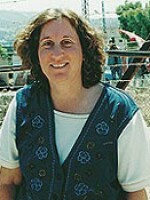DEBBIE ELLIOTT, host:
From NPR News, this is ALL THINGS CONSIDERED. I'm Debbie Elliott.
On a day that has seen some of the heaviest fighting yet between Israeli troops and Hezbollah guerrillas, Israel's cabinet has approved the United Nations ceasefire resolution to end the month-long war.
The ceasefire is set to take effect early tomorrow morning, yet there are signs from both sides that implementing the agreement may face serious hurdles.
First, this report from NPR's Linda Gradstein in Jerusalem.
LINDA GRADSTEIN reporting:
Hours after the cabinet approved the ceasefire, Israeli Foreign Minister Tipi Livni said Israeli troops will leave south Lebanon only when the Lebanese army and an international force are in place.
United Nations officials say they hope that can be accomplished in days.
But Hezbollah leader Hassan Nasrallah says his force won't pull back until Israel withdraws, and Israel says it won't move until the Lebanese army takes over the territory between the Israeli border and the Litani river about 13 miles north.
Israeli media reports say the cabinet session was stormy but the final vote was 24 to 0. Housing Minister Meir Sheetrit told Israel television that the ceasefire is good for Israel.
Mr. MEIR SHEETRIT (Israeli Cabinet Minister): We have to stop this conflict in this campaign, and I think the resolution of the United Nation was a very good resolution from the point of view of Israel, because it achieved most of the goals that we put before our eyes before we started the campaign.
GRADSTEIN: But other cabinet ministers such as Isaac Herzog, also speaking to Israel television, were more skeptical.
Mr. ISAAC HERZOG (Israeli Cabinet Minister): We believe that the proof of the success of the resolution is by its implementation. We will test the implementation and we will have to see whether in fact the Hezbollah forces are out of southern Lebanon and the international force enters with full force to preserving the tranquility in Lebanon.
GRADSTEIN: Prime Minister Ehud Olmert, who encouraged the cabinet to adopt the resolution, said it is a step toward implementing a previous U.N. resolution which calls for Hezbollah to be disarmed.
But privately, several Israeli officials said they were skeptical that the ceasefire would hold. Israel has not been happy with the current United Nations force stationed in south Lebanon called UNIFIL. Israel accused them of standing by idly while Hezbollah built up the huge stores of rockets they are currently firing against Israel.
But U.N. envoy to the Middle East Alvaro DeSoto says this UNIFIL force will be different.
Mr. ALVARO DESOTO (U.N. Envoy): UNIFIL has gone through several incarnations. It now has a rather restricted mandate and it's only composed of 2,000 men, but it will be increased up to 15,000. And it will have a rather robust capacity to assist the government of Lebanon to carry out its responsibilities.
But the important point is that it is the government of Lebanon who will be taking on this responsibility, and that is an important new step in the implementation of resolution 1559.
GRADSTEIN: That's the previous resolution that calls for the Lebanese army to deploy in the south and disarm Hezbollah.
Despite the talk of a ceasefire, heavy fighting continued on the ground. Hezbollah fired an estimated 200 rockets into Israel today, killing one civilian. At least seven Israeli soldiers were killed in fighting with Hezbollah guerrillas in south Lebanon after 24 soldiers killed yesterday.
Some Israeli troops reached the Litani river about 13 miles inside Lebanon. Israel wants to push the Hezbollah fighters beyond the river, which would take most of northern Israel out of the range of the short-range katyusha rockets.
Linda Gradstein, NPR News. Jerusalem. Transcript provided by NPR, Copyright NPR.






